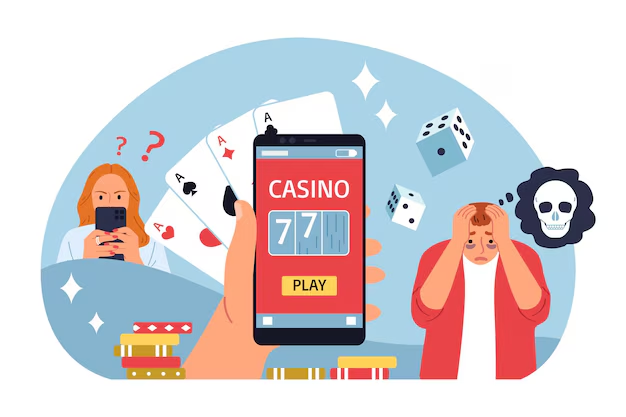How to test online casino fairness
Begin by checking if the online casino holds a valid license from a reputable authority. Licenses from established jurisdictions like Malta, Gibraltar, or the UK signify that the casino meets strict regulatory standards. This is your first line of defense against unfair practices.
Next, examine the casino's use of random number generators (RNG) to ensure that games are fair. RNG technology guarantees that all outcomes are random and unbiased. Reputable casinos often provide verifiable audits of their RNG systems, so don't hesitate to request this information.
Look into the payout percentages (RTP) of the games offered. This metric reveals how much of the wagered money is returned to players over time. A higher RTP often points to a fairer gaming experience. Check if the casino publishes these statistics transparently, as well as any third-party evaluations regarding their fairness.
Lastly, read player reviews and community feedback to gauge the casino’s reputation. A trustworthy site will have positive comments regarding payouts, customer service, and overall player experience. Engaging with forums and review platforms can provide you with valuable insights into others' experiences.
Understanding Random Number Generators (RNGs)
RNGs determine the outcomes of games in online casinos, ensuring fairness and unpredictability. These algorithms generate random sequences of numbers that translate into various game results, from slot spins to card shuffles.
Most online casinos utilize either hardware-based or software-based RNGs. Hardware RNGs often rely on physical processes, such as electronic noise, while software RNGs employ complex algorithms to simulate randomness. Reliable casinos undergo regular audits by independent testing agencies like eCOGRA or iTech Labs to verify their RNGs’ integrity.
Transparency is key. Look for casinos that publish reports of their RNG audits, allowing players to verify fairness. Additionally, ensure the casino operates with a valid gaming license, which usually mandates compliance with RNG regulations.
Players should also be aware of the return-to-player (RTP) percentage, which indicates how much of the wagered amount is returned to players over time. A higher RTP percentage typically signifies a more favorable game environment.
In summary, understanding RNGs enhances your gaming experience. Choose licensed casinos, check for regular audits, and pay attention to RTP rates to ensure a fair play environment.
Evaluating Game Return to Player (RTP) Percentages
Focus on the RTP percentages displayed for each game in an online casino. These figures indicate the long-term payout a player can expect, expressed as a percentage of total bets. Ideally, seek games with an RTP of 96% or higher for a favorable advantage.
To evaluate RTP, consider the following steps:
- Check the Game Information: Most online casinos provide detailed information about each game, including RTP. Ensure you read this section before playing.
- Look for Independent Audits: Reputable casinos often undergo audits from third-party companies to verify RTP. These reports add credibility to the stated percentages.
- Consider the Game Type: Slot games typically have varying RTP percentages. Table games like blackjack and poker often have higher RTP, sometimes exceeding 99% with optimal strategies.
Additionally, know that RTP is based on millions of spins or hands. Short-term results may differ; individual sessions can lead to losses even with high RTP games.
To make informed decisions, compare RTP across several games within the same category. This analysis helps identify which titles consistently offer better returns.
Remember to balance RTP with volatility. A game with a high RTP but high volatility may not pay out frequently, while a lower RTP game might offer smaller, more frequent wins. Choose according to your risk tolerance.
By scrutinizing RTP percentages and associated game characteristics, you enhance your chances of a rewarding experience in online casinos.
Reviewing Licensing and Regulatory Compliance
Check for valid licenses from recognized authorities like the UK Gambling Commission, Malta Gaming Authority, or the New Jersey Division of Gaming Enforcement. Reliable casinos display their license information prominently on their websites, usually in the footer section.
Verify the license number and authority on the regulator's official website for authenticity. This ensures the casino adheres to strict guidelines and is subject to regular audits, which promotes trustworthiness.
Consider jurisdictions with strong consumer protection laws. Casinos regulated in regions like the UK and Malta often offer robust player safeguards, including fair play policies and responsible gambling measures.
Review the casino's terms and conditions. Look for transparency regarding game odds, payout percentages, and withdrawal policies. Clear information indicates a commitment to fair play and customer satisfaction.
Research player feedback and reviews regarding compliance and fairness. The experiences of other players can reveal patterns related to payout issues or customer service, providing insight into the casino's reliability.
Stay informed about pending or past complaints against the casino. Regulatory bodies often provide updates on disciplinary actions or fines levied against operators, which can be telling of their practices.
By meticulously assessing licensing and regulatory compliance, you can confidently choose a casino that prioritizes fairness and player protection.
Examining Transparency of Payout Processes
Check for clear information regarding payout methods displayed prominently on the casino website. Look for detailed descriptions of withdrawal options such as e-wallets, bank transfers, and credit cards. Reliable casinos provide easily accessible information about transaction times and any potential fees associated with withdrawals.
Invest in casinos that share their payout percentages publicly. A transparent casino often posts Return to Player (RTP) statistics, enabling players to understand their odds and expected returns. Analyze these payouts over time to identify any discrepancies or patterns.
Verify the presence of independent audits. Trustworthy casinos often employ third-party agencies to review their payout processes. These audits ensure fairness and accuracy in their operations. Look for certifications or seals from recognized bodies displayed on the casino’s website.
Examine user reviews and forums for player experiences related to withdrawals. Pay attention to comments about processing times and customer support responsiveness. Casinos with consistent complaints about slow payouts may not prioritize transparency.
Contact customer support with specific questions about withdrawal policies before signing up. A responsive and informative support team reflects the casino’s commitment to transparency. Reliable casinos will gladly clarify any aspects of their payout processes.
Utilize casinos that provide a detailed breakdown of the payout process within their terms and conditions. This documentation should outline verification requirements, processing times, and limits. A thorough policy indicates adherence to clear operational standards.
Researching Player Feedback and Ratings
Check player reviews on multiple platforms to gather a balanced perspective. Focus on dedicated gambling forums, review websites, and social media. Players often share detailed experiences that highlight specific strengths and weaknesses of online casinos.
Pay attention to recent feedback, as this reflects the current state of the site. Older reviews might not accurately represent recent changes or improvements. Look for patterns in player comments regarding fairness, payout speed, and customer service. Frequent issues mentioned by multiple users should raise red flags.
Examine ratings given by players. While a high score is encouraging, read the reviews behind those numbers. A casino with a 4-star rating backed by extensive positive reviews is preferable to one with a similar rating but scattered complaints.
Consider both positive and negative feedback. Positive reviews may highlight reliable payouts and excellent support, while negative ones often reveal unaddressed issues. Balance is key–filter out overly emotional responses that might skew the view, and focus on objective assessments.
| Source | Type of Feedback | Examples |
|---|---|---|
| Gambling Forums | Detailed Experiences | Player wins, payout issues |
| Review Websites | Aggregated Ratings | Overall score, pros and cons |
| Social Media | Quick Opinions | Short comments, feedback trends |
Monitor the response of casinos to player feedback. Positive interaction shows a commitment to customer satisfaction, while ignored complaints could indicate a lack of accountability. A proactive approach from the casino often reflects its values.
Lastly, verify the legitimacy of the reviews. Look for verified player accounts to ensure the feedback is genuine. Sites with a transparent review process tend to provide more reliable insights into player experiences.
Analyzing Security Measures and Responsible Gambling Policies
Check for SSL encryption on the casino's website to ensure the protection of your personal and financial information. This security feature encrypts data during transmission, making it hard for unauthorized parties to access sensitive details.
Review the licensing information. A reputable online casino operates under strict regulations enforced by recognized authorities, such as the UK Gambling Commission or the Malta Gaming Authority. This guarantees a level of oversight and accountability.
Examine the gaming software providers. Leading providers like Microgaming, NetEnt, and Playtech undergo rigorous testing for fairness and reliability. Their endorsement signals that the casino adheres to high industry standards.
Look for responsible gambling features. A responsible online casino offers tools that help players manage their gambling habits. Options such as deposit limits, time-outs, and self-exclusion indicate the casino's commitment to player welfare.
Read the terms and conditions thoroughly. Understanding the rules surrounding bonuses and promotions can help avoid misunderstandings. Transparent policies about withdrawals and playthrough requirements enhance trust.
Access customer support channels. Quality online casinos provide multiple avenues for assistance, including live chat, email, and phone support. Efficient customer service reflects the casino's dedication to maintaining a positive player experience.
Analyze third-party audits and fairness certifications. Independent organizations like eCOGRA assess online casinos to ensure that games are fair and payouts are accurate. Look for their seals of approval on the casino's site.
Assess the presence of educational resources about responsible gambling. Casinos that prioritize player safety often provide information on recognizing problem gambling and accessing support services.







